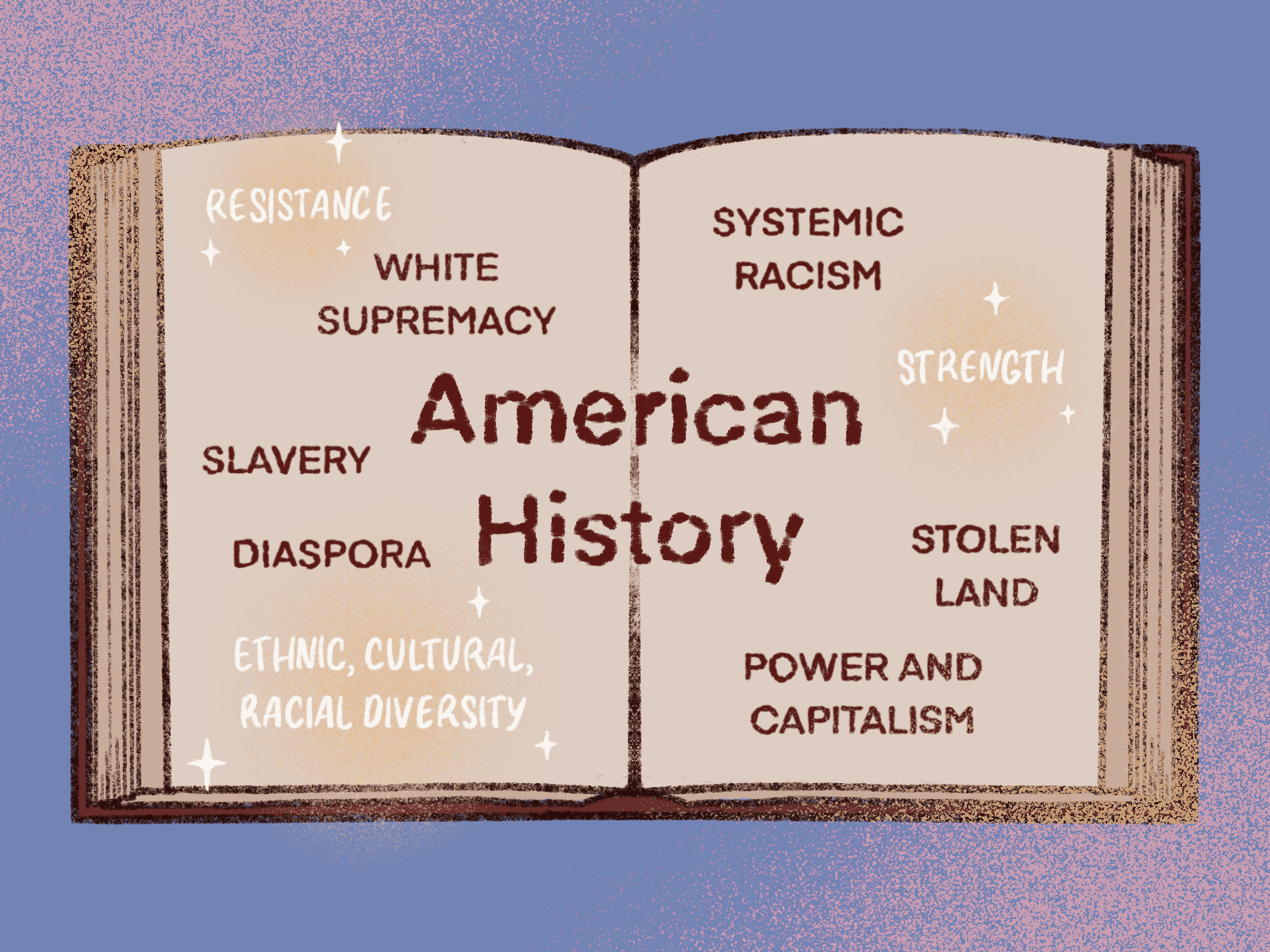The Future: Critical race theory will help us see past misguided colorblind lenses
(Isabella Lee/Illustrations director)
By Tabitha Hiyane
April 27, 2023 9:11 p.m.
“I don’t see color.”
An illusion of equality, the phrase holds with it a certain danger – it walks the line of racism.
Clearly, while racial difference has led to oppression for some, it has meant privilege for others. Thus, to reject race is to reject the truth of unequal racial realities.
As states across the nation implement legislation attempting to stifle critical race theory, this aversion to admitting our differences only strengthens the need for CRT to inform our understanding of the world.
The NAACP Legal Defense Fund defines CRT as an academic and legal framework that explores the ways in which systemic racism has penetrated our societal institutions and infiltrated public policy, driving racial inequality across society.
In many ways, CRT seeks to understand how the race construct has functioned and thus evaluate the disparities it creates.
“The intent and long-term goal has been to expose and demonstrate the salience of racism in the construction of American democracy and society,” said Kyle Mays, an assistant professor specializing in African American studies, American Indian studies and history.
CRT wades into the murkiness of a deeply racist American past, challenging the supposed neutrality of the legal system and committing to a future of equity in policy making. For example, CRT studies the policies and practices behind racially segregated schools or disparities faced by primarily Black and Latino districts in education.
In recent years, however, the world has seen CRT devolve into a media buzzword. Nicole Curristan, a first-year environmental science student, said the term “critical race theory” has been heavily diluted by a storm of disinformation and conservative fear-mongering.
“The way that critical race theory has been misconstrued in society has been damaging to having a productive narrative and dialogue about reforming education and making education more just and equitable,” said Curristan.
The attacks on this movement have dangerous implications for our entire nation.
An invasion of a reactionary political agenda on the education system, restricting CRT discourse is not only a threat to academic freedom but also foreshadows a restriction of discourse on race, racism, equality and diversity altogether.
Yet race is sewn into our society. With the enslavement of African and African American peoples, the persistence of anti-Blackness, the devastating effects of settler colonialism, and land dispossession of Indigenous people, the American narrative is fraught with racism and ethnic discrimination.
“Teaching people to be conscious of race would involve studying how race was constructed by society, by the legal system,” said Kyle Reinhard, a CRT Forward Tracking Project Fellow and UCLA School of Law graduate. “And it might teach you that race remains important.”
More often than not, the American narrative has refused to take responsibility for its colonial violence. The retelling of its power-ridden history has omitted the suffering of identities spanning Black, Hispanic, Latino, Asian and Asian American, Middle Eastern and Middle Eastern American, and Indigenous people. Silencing has become a part of its tradition.
Thus, it is a moral obligation to equip students with the tools to understand different racial realities and the truthful account of history.
“In an ideal world, you should give as much detail and complexity as possible, even at a very young age,” Mays said. “Often, we’ll hear white parents ask, ‘When should I introduce issues like race to my kids?’ and it’s not the same if you’re a child of color because you’re already introduced to your race.”
Opposition toward CRT has been justified by conservative discomfort toward “divisive concepts,” which recently sparked controversy over the College Board’s AP African American studies course content. The omission of integral Black studies concepts such as intersectionality and activism, Black feminist literary thought, and Black queer studies has not been well-received by the academic community.
But the conservative backlash toward CRT misses the point. Inclusivity and adequate representation of racially charged social issues are not dangerous. They are essential.
“People equate the idea of helping someone to alleviate the effects of racism with intentionally being racist, as if noticing race is an injury itself, rather than just a fact,” Reinhard said. “You can’t not notice someone’s race. It’s something that’s embedded in our culture very deeply.”
An anti-racist education system is critical to American society. This involves unsilencing the silenced narratives of oppressed groups and decentering the dominating white supremacist narrative.
“I was taught … that the Civil Rights Era was the end of it – once Brown vs. Board of Education happened, once the Civil Rights Act was passed, that was finished, and now we’re into this new era,” said Reinhard. “But if you’re able to connect the dots between how did we get from the founding of the country to the Civil Rights Era to now? I think that’s helpful.”
With a commitment to equity, CRT remains key to understanding and improving American society. It has taught us that color blindness cannot exist. There is no denying that race is a reality.
The expanding field of CRT will educate us not only on how public policy should be done but on how education should be done.
As a whole, the American education system, in recognizing that knowledge is truly power, will strive for proper representation of our people. The criticisms of CRT are thus a constructive means to creating a more inclusive environment, molding students into critical thinkers, conscientious citizens and empathetic human beings.
